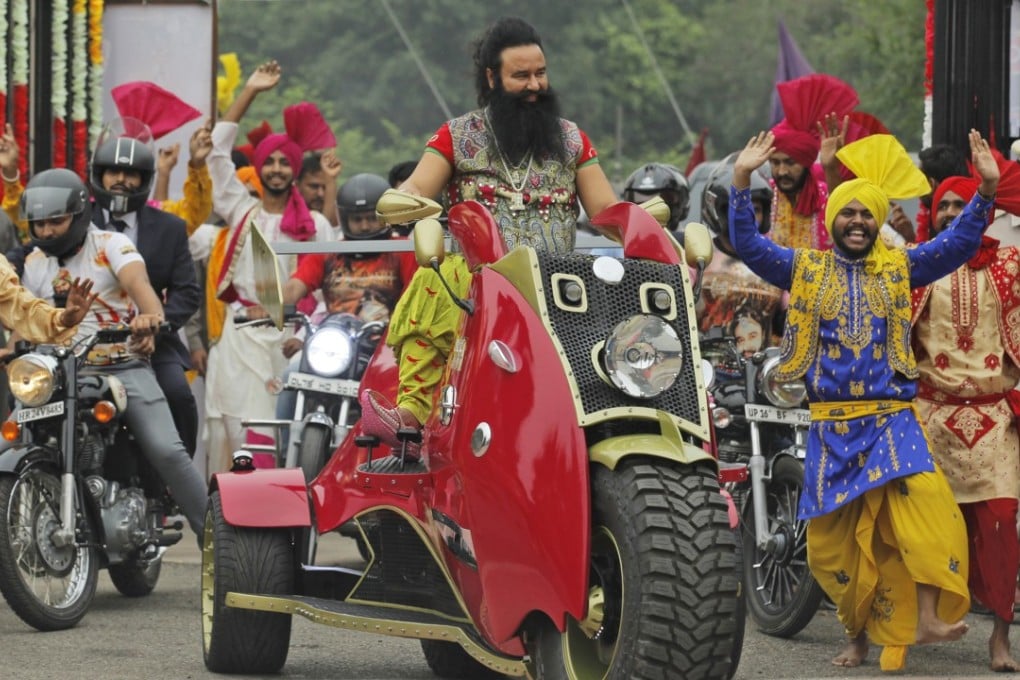Forget Charles Manson: why Indian gurus are a cult above the West
India’s godmen make billions, sway political fortunes, and hold entire cities to ransom – as the aftermath of Ram Rahim’s jailing shows. So what’s behind their unholy hold on the public imagination?

MORE THAN 250 people were injured and 38 died when violence broke out in parts of North India a week ago after a court found a popular guru called Gurmeet Ram Rahim guilty of rape. The guru’s followers ran amok, the local administration failed to control the violence (which had been widely predicted) and three days later, when Ram Rahim was sentenced to 20 years in prison, the verdict was not delivered in any court.
Instead, the judge and his entourage flew to Rohtak jail to announce the sentence. It was considered too dangerous to have any more proceedings in a courtroom because the threat of violence from Ram Rahim’s supporters was so great.

But there is something specifically Indian about Ram Rahim and the phenomenon he has engendered. For a start, there’s the man himself. Loud, hairy and bombastic, he favours a blingy wardrobe that would make even the most flamboyant rapper blush. Nor is he an ascetic of any sort. He has produced movies starring himself in which he beats up villains and jiggles his mighty hips to Bollywood-type music. He chose the names of his movies himself. His most famous picture was modestly titled Messenger of God.
Imagine what China and India can do together
For most of India, Ram Rahim is a bizarre joke. And yet nobody can deny his influence or the loyalty he evokes in his followers. It was said a single directive from Ram Rahim could make his followers vote en masse to defeat a hostile candidate. So politicians have always flocked to him, seeking his blessing.